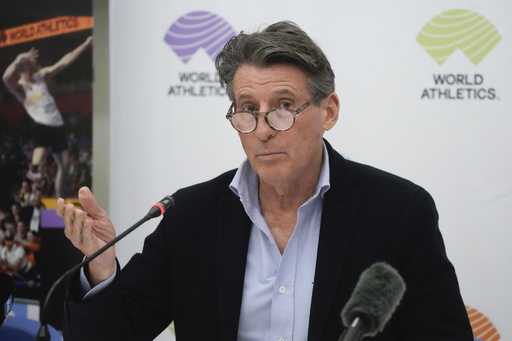
LAUSANNE, Switzerland — The International Olympic Committee (IOC) is set to hold its first presidential election since 2013, with seven candidates vying for the position. Their manifestos reveal a shared perspective on key issues facing the IOC and global sports, including climate change, sustainability, engaging youth through social and digital media, leveraging artificial intelligence, and protecting women’s sports. However, they diverge on the topics of Olympic prize money for athletes and how to engage over 100 voters in shaping the future of the IOC and selecting host cities. The election is scheduled for March 18-21 in Greece, and the winner will take over from Thomas Bach, whose presidency will officially conclude on Olympic Day, June 23, following a brief transition period.
Sebastian Coe from Britain, the current president of World Athletics and a two-time gold medalist in the 1,500 meters, emerges as a prominent challenger to the established Olympic framework. He emphasizes the need for a reset around sports while acknowledging that the IOC is not fundamentally broken. Coe has come out in favor of award systems that pay Olympic champions and has a record of maintaining strict anti-doping measures and advocating gender fairness in athletics. He highlights a need for decentralizing decision-making to provide athletes with meaningful input, a point he believes has been a concern among IOC voters. Nearing the IOC’s retirement age of 70 at 68, Coe would need an exemption to serve beyond that age but has pledged to seek re-election after four years.
Kirsty Coventry, an IOC Executive Board member from Zimbabwe and a two-time gold medalist in swimming, is viewed as a favored candidate of Bach. Her manifesto, while filled with lofty objectives, lacks specific details. She supports strengthening existing IOC policies, such as athlete scholarship programs and the empowerment of IOC commissions. Coventry, at only 41, could become both the first woman and the first African to lead the IOC, emphasizing a philosophy of community and interconnectedness through her concept of “Ubuntu.”
Johan Eliasch, an IOC member since just July, brings extensive leadership experience across sports, business, and philanthropy. He argues against the IOC awarding prize money to athletes and insists on shaping gender policy to ensure fairness in women’s competitions. Eliasch champions a more entertaining Olympic experience throughout the event and advocates for a rotating strategy for the Winter Games across permanent venues to promote sustainability. As a seasoned environmentalist, he is also committed to conserving large areas of rainforest corresponding to the size of Olympic host cities.
Prince Feisal al Hussein of Jordan, an IOC Executive Board member, bases his 20-page manifesto on 35 years of military and diplomatic service. He proposes greater agency for IOC members within IOC business, raising the retirement age to 75. He suggests the implementation of prize money for athletes and seeks to adjust the scheduling of Summer Games to combat climate change. Further, Prince Feisal proposes establishing regional IOC offices to decentralize operations, aiming for more inclusive governance.
David Lappartient from France, the president of the International Cycling Union, has been an IOC member for less than three years but has already led successful projects, including securing the 2030 Winter Games for the French Alps. He emphasizes reviewing current systems while advocating for increased voice and engagement from IOC members and more representation of athletes within the organization. He suggests reducing the number of committees to work efficiently and successfully transition the Olympic focus toward Africa, all while opposing prize money distributions.
Juan Antonio Samaranch Jr., the son of a former IOC president from Spain, offers an extensive 42-page policy manifesto outlining his ambitions for the role. Drawing from his lengthy experience within the Olympic movement, he seeks to enhance dialogue among IOC members, providing options for host city selections and adjusting game schedules. Samaranch also advocates relaxing broadcast restrictions to help Olympic athletes reach broader audiences on social media, alongside initiatives to generate significant funds for Olympic-related charities.
The last candidate, Morinari Watanabe of Japan, leads the International Gymnastics Federation and presents the shortest manifesto. He introduces groundbreaking ideas, like hosting the Olympics across all five continents simultaneously, with a vision for a more decentralized IOC structure. He hints at a new focus on projects that promote mental health and well-being, stemming from personal connections to the atomic bomb tragedy in Hiroshima.
As the election approaches, the candidates’ platforms offer a diverse range of perspectives on how to carry the IOC forward into a new era. Each contender brings their unique background and expertise, shaping a competitive landscape for the future leadership of the Olympic Movement.

